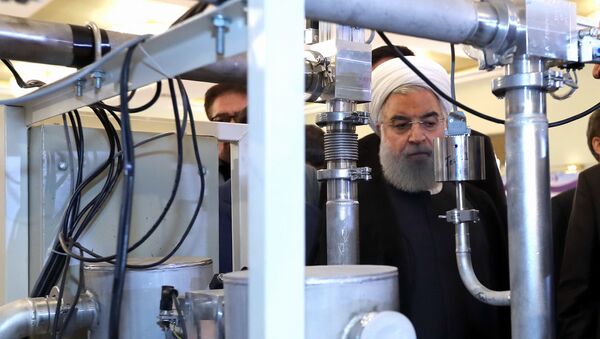"Iran’s move to reduce its commitments is not aimed at undermining the JCPOA, but also an attempt to save it; because we believe that if we don’t do anything, the deal will be lost", Rouhani said, quoted by his press office.
According to the president, despite Europe having done nothing to preserve the deal, Tehran is ready to return to the agreement once the other signatories do the same.
"We could not remain silent in reaction to the inaction of the other side, and that's why we have done these things, but the other sides should know that at any hour that they come back to the JCPOA, we will return as well; we are still in the deal and all the actions we do are to save the deal", Rouhani said, adding that Iran was "advising the United States and Europe to return to the negotiation table" as "everybody must act based on the JCPOA".
In addition, the president warned that beginning 7 July, Iran’s uranium enrichment would exceed 3.67 percent and be further developed to a level Tehran requires.
Iranian Foreign Minister Mohammad Javad Zarif said Monday that the country had exceeded the 300 kilograms (660 pounds) enriched uranium stockpile limit set out by the 2015 deal, a fact that has been confirmed by the International Atomic Energy Agency.
On 8 May, Iran announced that it was partially discontinuing its obligations under the JCPOA. The decision came exactly a year after the United States fully withdrew from the nuclear agreement and reimposed wide-ranging sanctions on Iran.
Iran also gave the other nuclear deal signatories — China, the European Union, France, Germany, Russia, and the United Kingdom — an ultimatum, giving them 60 days to shield Tehran from Washington's sanctions or else risk a further reduction of its commitments.



